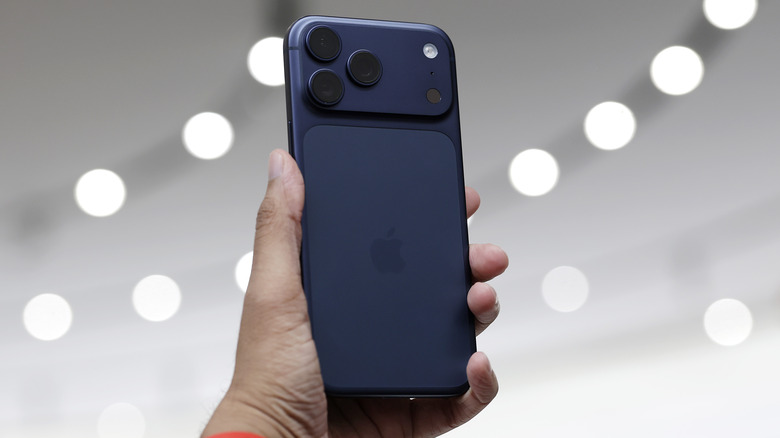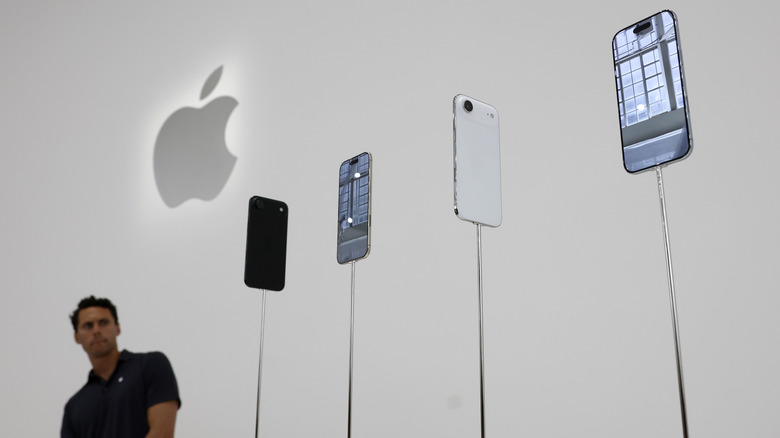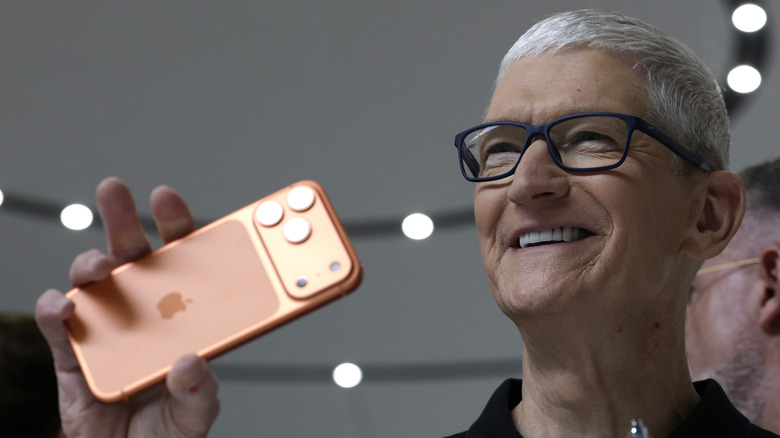iPhone 17 Includes A Powerful New Security Feature To Combat Spyware
Apple's big event yesterday wasn't chock full of surprises, but that has less to do with Apple's new product lineup and more to do with the fact that many product details leaked out months ahead of time. After all, it's hard to be blown away by the iPhone Air when we knew the device's dimensions months ago. That said, there's no denying that Apple's new iPhone lineup is impressive. From the new Center Stage camera to enhanced battery life across the board, the new iPhone models bring a lot of compelling new features to the table.
One of the more impressive enhancements coming to the iPhone is a new security feature Apple calls Memory Integrity Enforcement (MIE). Apple didn't mention it during the keynote, but the company on Monday published a research report detailing how the feature will strengthen iPhone security and make devices less vulnerable to spyware.
Apple says it's been working on MIE for about five years and that it "represents the most significant upgrade to memory safety in the history of consumer operating systems." The feature is included in every iPhone 17 model and the iPhone Air. As the name implies, Memory Integrity Enforcement ensures that only trusted code can run in protected memory, rendering any efforts to inject malicious code futile. Apple notes that this will make the iPhone much more challenging for sophisticated spyware to penetrate.
How Apple developed its new security feature
While the iPhone is generally secure, it has proven to be vulnerable to advanced spyware in recent years. In some instances, malicious actors have developed spyware which incorporates a chain of zero-day exploits in order to access a device. For example, recall that the NSO Group over the past few years has released incredibly powerful spyware capable of monitoring everything a targeted user does on their device. Some of the more recent NSO Group spyware is so advanced that it can infect a device without a target even clicking on a link. Indeed, sometimes simply receiving a text message is enough for sophisticated spyware to effectively embed itself in iOS.
Apple writes that when advanced spyware takes over an iPhone, it's because the spyware is able to exploit "memory safety vulnerabilities." MIE is designed to shore up those gaps.
"MIE is built right into Apple hardware and software in all models of iPhone 17 and iPhone Air and offers unparalleled, always-on memory safety protection for our key attack surfaces including the kernel, while maintaining the power and performance that users expect," Apple's security report reads in part.
Years in the making
Apple adds that it's been testing and refining its new security system since 2020. At first, Apple focused on conceptual attacks. Apple then asked its offensive research team to challenge the system with sophisticated attack vectors the iPhone would likely encounter out in the wild. The design of Apple's MIE was molded, in part, by the results of those tests.
iPhone security is famously akin to a game of cat and mouse. And while Apple's work with MIE is undeniably impressive, Apple itself concedes that 100% security for a mobile device simply doesn't exist. All that said, it will be interesting to see how quickly advanced spyware is able to compromise Apple's robust security system, if at all.
One final point worth noting is that Apple is very optimistic about MIE. It believes that even if a bad actor can figure out a way to target an iPhone 17, doing so might be prohibitively expensive. Indeed, Apple writes that MIE will "disrupt many of the most effective exploitation techniques from the last 25 years, and completely redefine the landscape of memory safety for Apple products."


